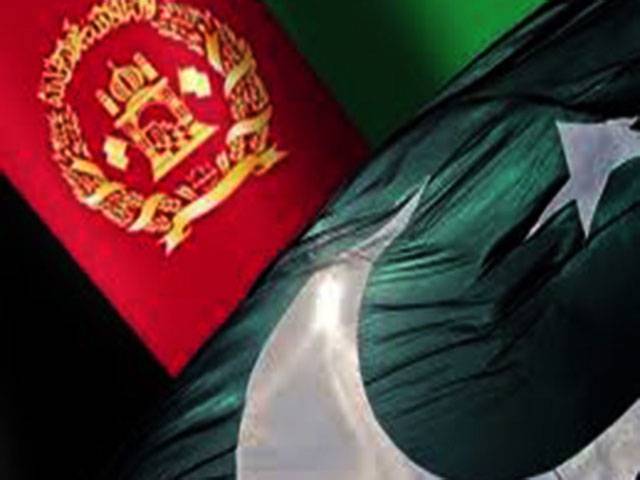ISLAMABAD - Pakistan and Afghanistan will hold talks on July 26 over the contentious issue of border management in Kabul, the Foreign Ministry said yesterday.
The Ministry announced the first meeting of Pakistan-Afghanistan joint technical working group will discuss ‘border management and related security issues.’
The US and Afghanistan have been in touch with Pakistan regarding the border management after Pakistan erected a gate at the Torkham border, resulting in skirmishes.
Torkham is one of the busiest of the eight established crossing points on the 2,500-kilometre-long porous border between the two countries, which is used by some 25,000 travellers every day. Pakistan has already told Afghanistan that border management was one of the mandatory steps to check the movement of terrorists.
The Afghanistan Pakistan border is demarcated by the Durand Line - established through the Durand Agreement of 1893 - which split communities into halves.
Kabul claims no Afghan govt ever accepted the Durand Line as an international border, and ,therefore, justifies objection to all sort of Pakistani border construction efforts till the dispute was resolved.
However, Pakistan does not consider the border to be disputed as the Durand Line had been accepted by the Pakistani leadership as valid and legitimate.
There have been arguments by analysts that the Durand Line did not give the British the sovereign right over the tribal territories after the demarcation was completed, and was rather a convenient demarcation to recognise one’s sphere of influence.
The skirmishes between Pakistan and Afghanistan are not new as soon after Pakistan’s creation in 1947, there was crossfire between 1949-1950, which even led to the breakdown of diplomatic relations between them in 1955.
Relations further worsened in 1961, when Pakistan and Afghan forces clashed in a border flare-up, which did not escalate, due to the proactive role played by the US. The relations since then saw highs and lows. The most recent firing by Afghanistan erupted on the night of June 12, 2016 at the construction site of the gate in Torkham, damaging the ties.
The Foreign Ministry said that the meeting of the group will be held under the high-level consultation mechanism for coordination.
“The Pakistani delegation will be led by Director General Military Operations and include representatives of the concerned Ministries and departments,” said the statement.
Earlier, the statement said that Adviser to the Prime Minister on Foreign Affairs Sartaj Aziz and Afghan Foreign Minister Salahuddin Rabbani had agreed to constitute a high-level bilateral mechanism at the level of Foreign Ministers that would also include two National Security Advisers.
The decision had come on the sidelines of the Shanghai Cooperation Organisation Summit in Tashkent on June 24 and was aimed at focussing on consultation and coordination on issues including security, movement of people and vehicles between the two countries and other related issues. It was decided that the mechanism will also have a joint technical working group to deal with the mutual concerns, the Ministry said.
Officials said that Pakistan wanted to end the border tension with Afghanistan over the border issue once for all.
“We consider Afghanistan as a friend. We have never been part of any anti-Afghanistan activity. We are optimistic these talks will lay the foundation for settlement of the issue,” said a Foreign Ministry official.
Separately, Prime Minister's Special Assistant on Foreign Affairs Syed Tariq Fatemi said ‘inhumane and oppressive measures’ cannot deter Kashmiris from their demand of right to self-determination.
Briefing Ambassadors of the Middle East countries here yesterday, he expressed serious concerns over the ‘grave human rights violations taking place in Held Kashmir and brutal killings of innocent civilians by the Indian Forces.’
The Special Assistant said Kashmiris looked towards the Muslims in the Middle East at this difficult and challenging time.
He urged the Middle East states to raise their voice and condemn the blatant human rights violations of innocent Kashmiri Muslims in Held Kashmir.






